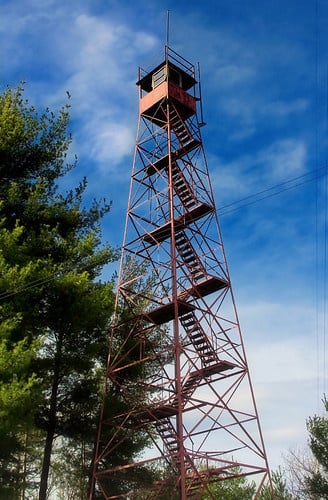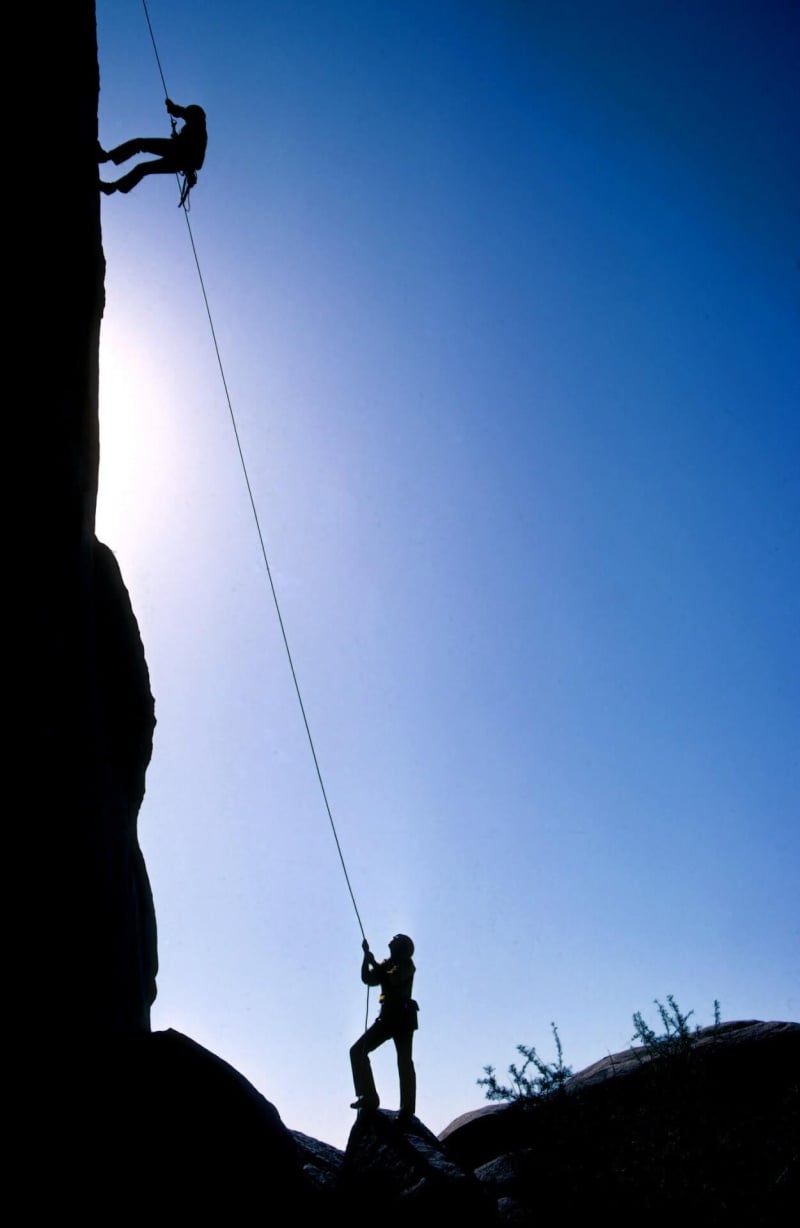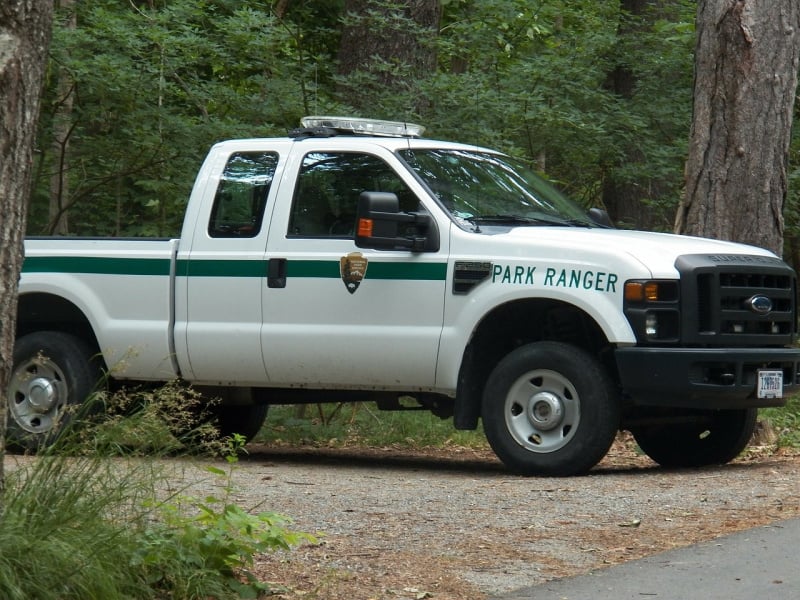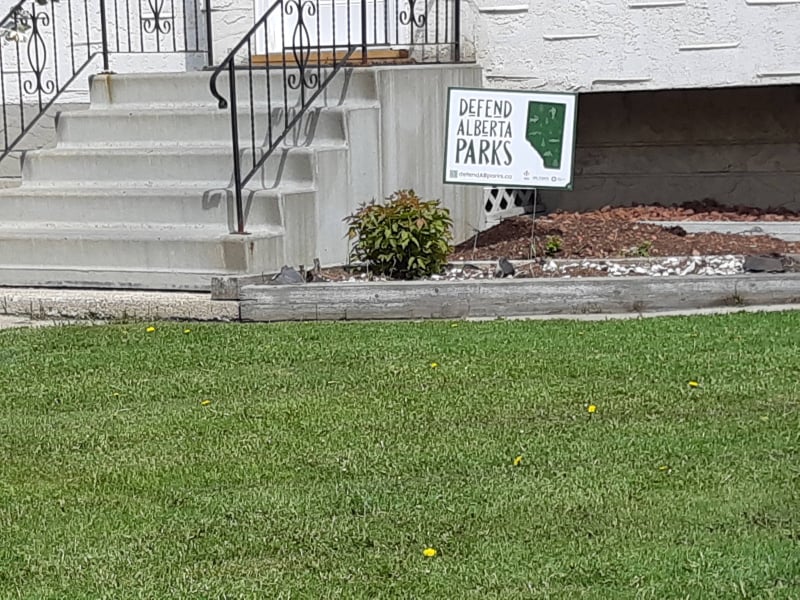Organizing in the wild
A how-to for members trying to build solidarity in solitary places.
May 26, 2021
By Celia Shea, Communications
If workers sing “Solidarity Forever” in a forest, but no one is around to hear it, did they make a sound? It’s lonely work surveying a woodland from a solo lookout-tower, working in the only government building of a small town, or skiing into the echo chamber of a mountain range to test a snowpack. But that doesn’t mean our members who perform these critical jobs are alone.
Even in solitary places, workers need solidarity. Organizing in remote or outdoor areas has its challenges, but if we work with the natural elements instead of against them, we can make amazing strides for the labour movement in rural Alberta. Right now, AUPE is building a network of contacts across all regions where we live and work. Our union needs the names and numbers of members in remote places. If that’s you, send your contact information to [email protected].
How we organize when we're on the outside

Hundreds of our members in direct government services work in the field or secluded places. If they’re not in the backwoods, they’re working in small groups or far-flung buildings. Isolation is part of the job, and it can insulate these members against the friction that transpires between bosses and front-liners in say, a big hospital. And few field folks are sitting around having coffee with each other. So, in the absence of office confrontation, conversation, and consistent staffing (30-50% of Local 005 members are seasonal), our members in the backwoods need other motivators and tools for mobilizing. Below are some to get you started, so you can build solidarity no matter where you’re stationed in the province.
This list of tips and tricks compiles insights from the frontlines, your AUPE Executive, and other organizations that successfully organized in the wild to create positive change in Alberta! It’s a living list, so we’d love for you to add to it. Have ideas? Email [email protected]
1. Identify Leaders

Alberta is big and the GOA is understaffed, so our field workers cover a lot of ground. Some of you will notice your Chapters are split across multiple sites. Unlike other AUPE members, many of you in the wild never meet your elected Local or Chapter Executive who have direct lines of communication with the larger union. But natural-born leaders are everywhere, and you certainly have at least one in your working group.
One of our members who spends about 60% of her week on the road and outside became the quasi-steward at her site when her coworkers solicited her for information about their rights under the collective agreement. A self-proclaimed “Type-A sh*t disturber,” she says her close reading skills and willingness to voice concerns with supervisors has inspired her to pursue steward education.
Leaders come in all forms. You don’t have to be extroverted or confrontational. If you you have the respect and trust of your co-workers, become a worksite contact by emailing [email protected] or become a steward by taking the online AUPE courses.
2. Spring time is the best time

This rule mostly applies to our seasonal members, such as tower persons, initial attack fire crews, and seasonal park and fish and wildlife officers, who are onboarded in the spring. This is the best time to introduce them to the union and build rapport. In non-COVID times, seasonal workers would train at the Hinton Training Centre in Hinton. During the next training session, encourage your Local to seek permission to buy the seasonal workers meals and do a welcome-to-the-AUPE presentation. Another great opportunity for field workers to get involved in the labour movement is through our AUPE telephone townhalls.
The UCP is targeting seasonal staff; these cuts might not be visible now, but our members will notice the gaps soon. Track the extra tasks and work you have to shoulder this summer in the absence of your seasonal counterparts. Hold your employer accountable if they breach your collective agreement, specifically your workload provisions.
3. Save coworkers from martyrdom
People rarely go into ecology or environmental protection for the money. Our members do because they love the outdoors or they’re passionate about conservation and sustainability. As a result, many of them continue finding personal fulfillment in their work even when the government devalues them. They might even justify a pay cut because cash is not their motivator, or they’ll believe the lie that any money the GOA skims from their wages will be diverted into another important public service.
If you’re in the environmental arm of the GOA, remind your fellow members that an outdoor office makes it easy to disconnect from stress, but the decisions our politicians make in the big city still affect them. A pay cut will not be rewarded later; the UCP is coming for their wages and jobs. In fact, Premier Kenney is already slashing members who monitor pollutants, study plants and wildlife, and enforce environmental protections, meaning his attack on workers has morphed into an attack on ecosystems.
4. Meet Albertans where they are

Take cues from one of the most successful campaigns this past year: Defend Alberta Parks, which the Canadian Parks and Wilderness Society (CPAWs) organized,
Rallying in the cities wasn’t an option for much of 2020, so using Zoom, CPAWs maneuvered around COVID to create a safe and effective campaign. They promoted “at-home” protests, in which Albertans staged backyard and living-room campsites and sent photos of their set-ups to the organization and the government.
The Defend Alberta Parks yard signs were also a huge success. Albertans took their lawn signs to the parks themselves and planted them in the ground to show the government they might not live in these remote areas, but they were watching.
Field workers have a long history of harnessing the climate and geography to strengthen their direct actions. When French fishers protested the rise in fuel prices in 2007, they didn’t take their strike to the street. They used their greatest resources, the vast ocean and their boats, to block entrances to three oil depots in the Atlantic port of Brest. And when Quebec’s public-sector parks employees struck, they served notice on the eve of hunting season to maximize the disruption.
Organizing in the wild is different than organizing in the big city, but it’s not impossible, and it’s certainly necessary for growing our solidarity to include the entire province.